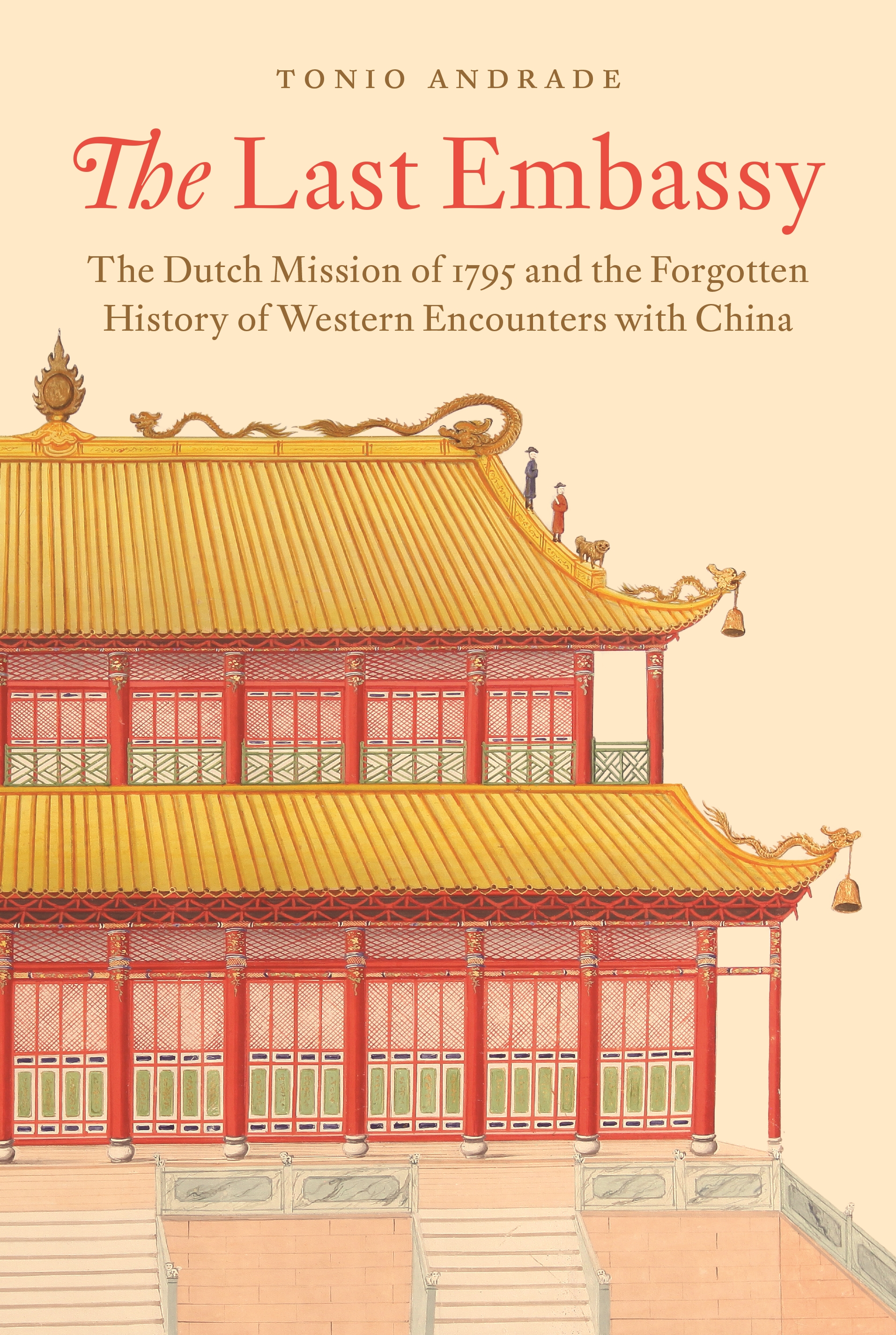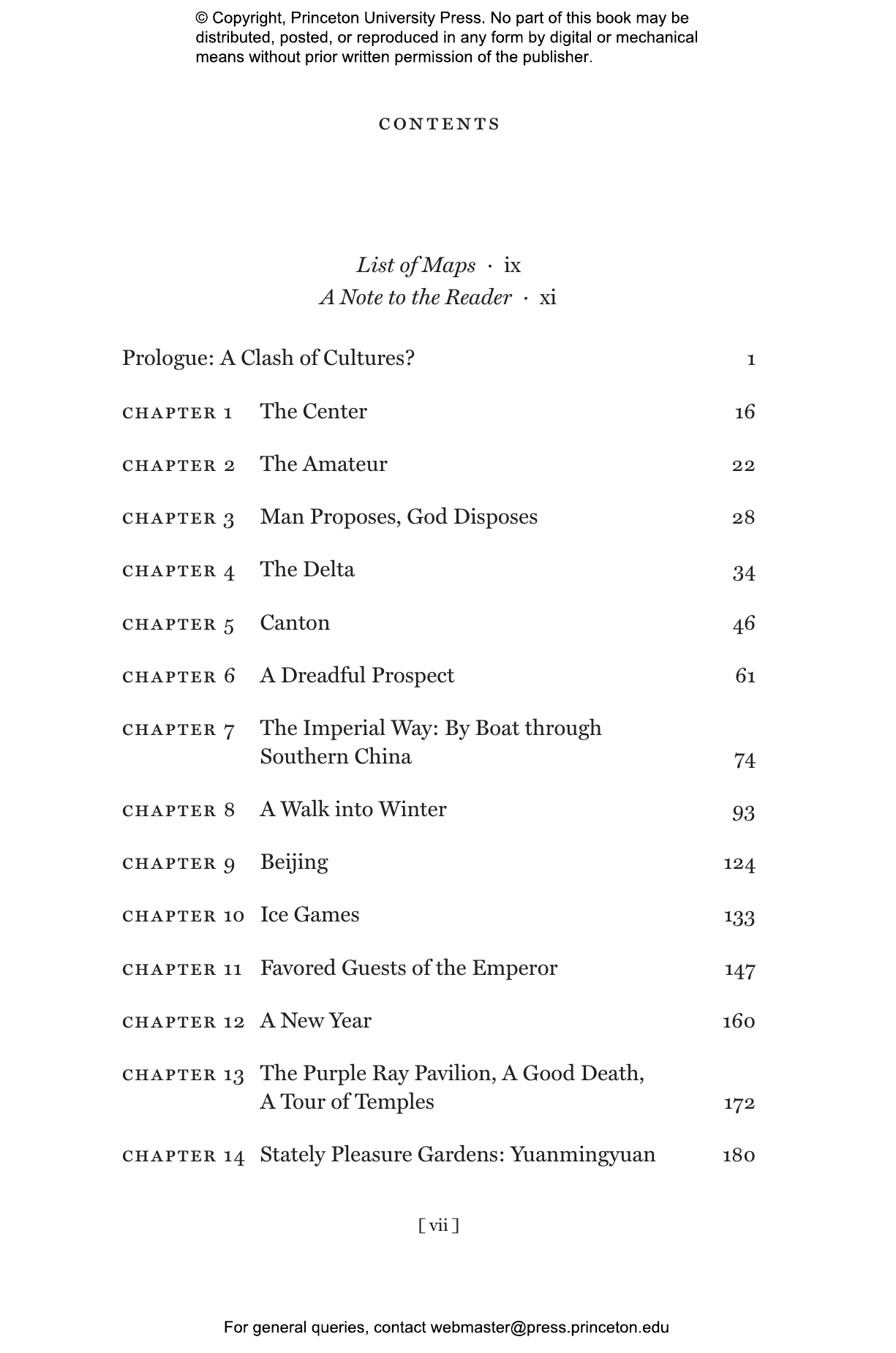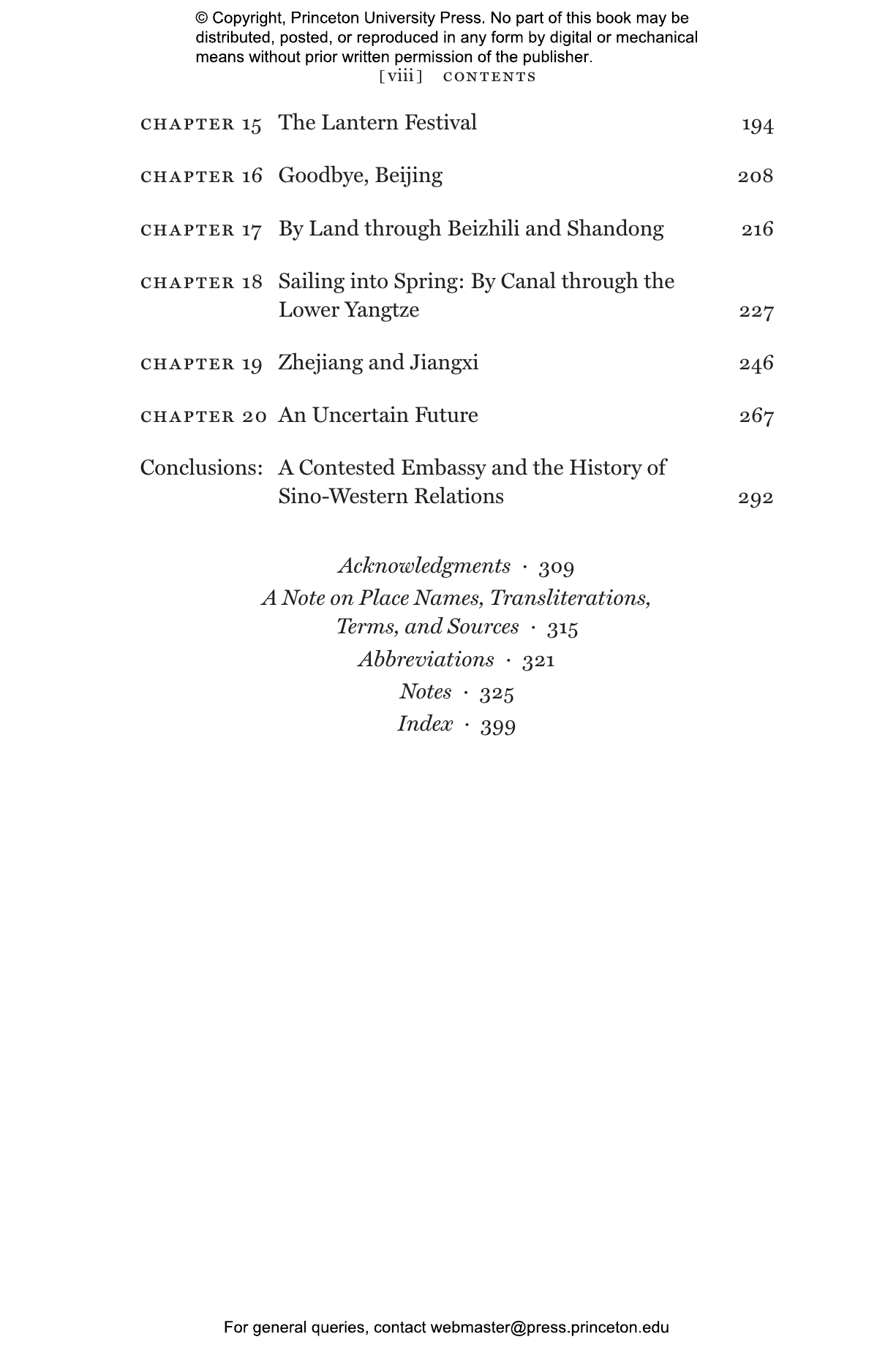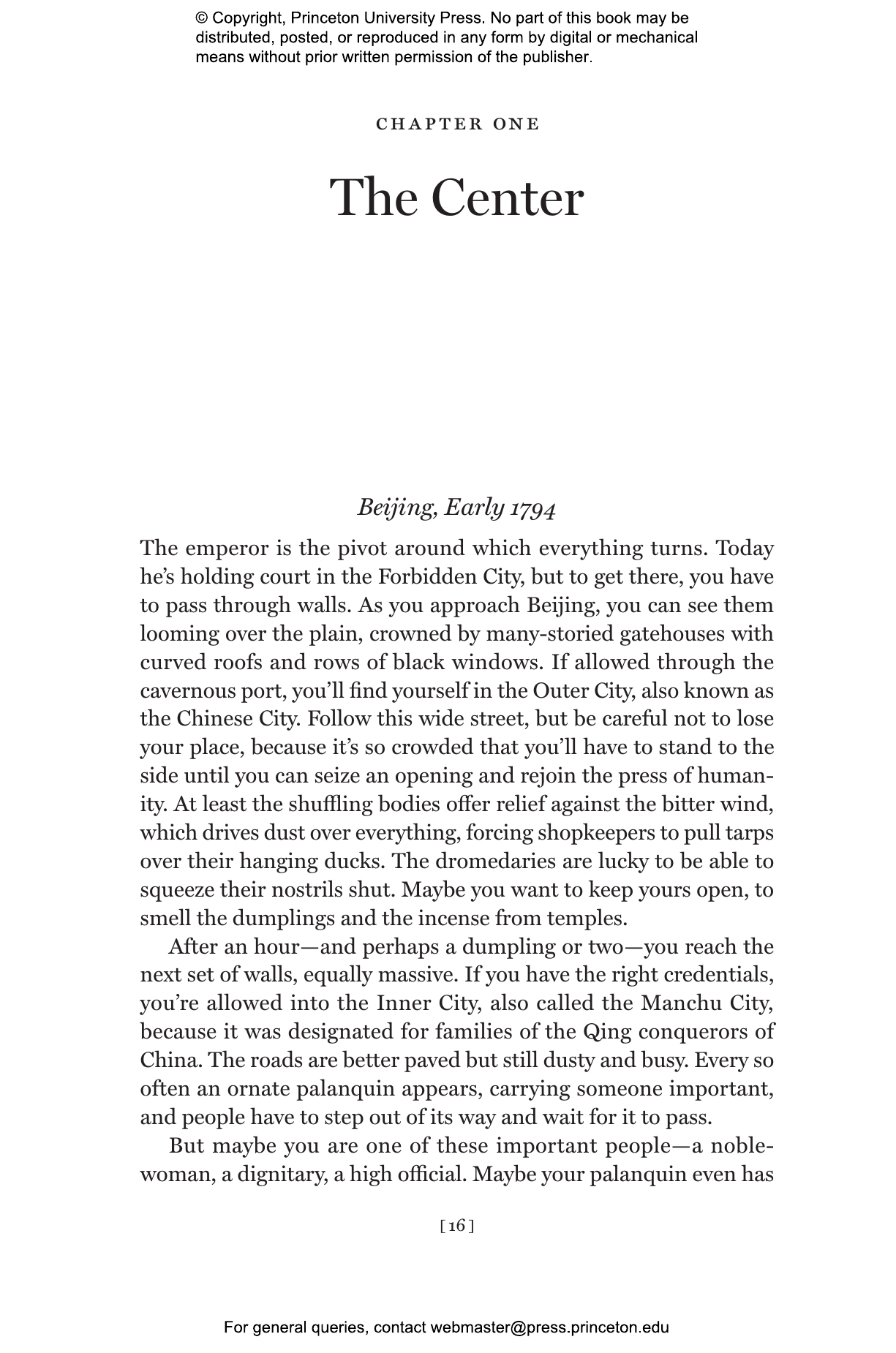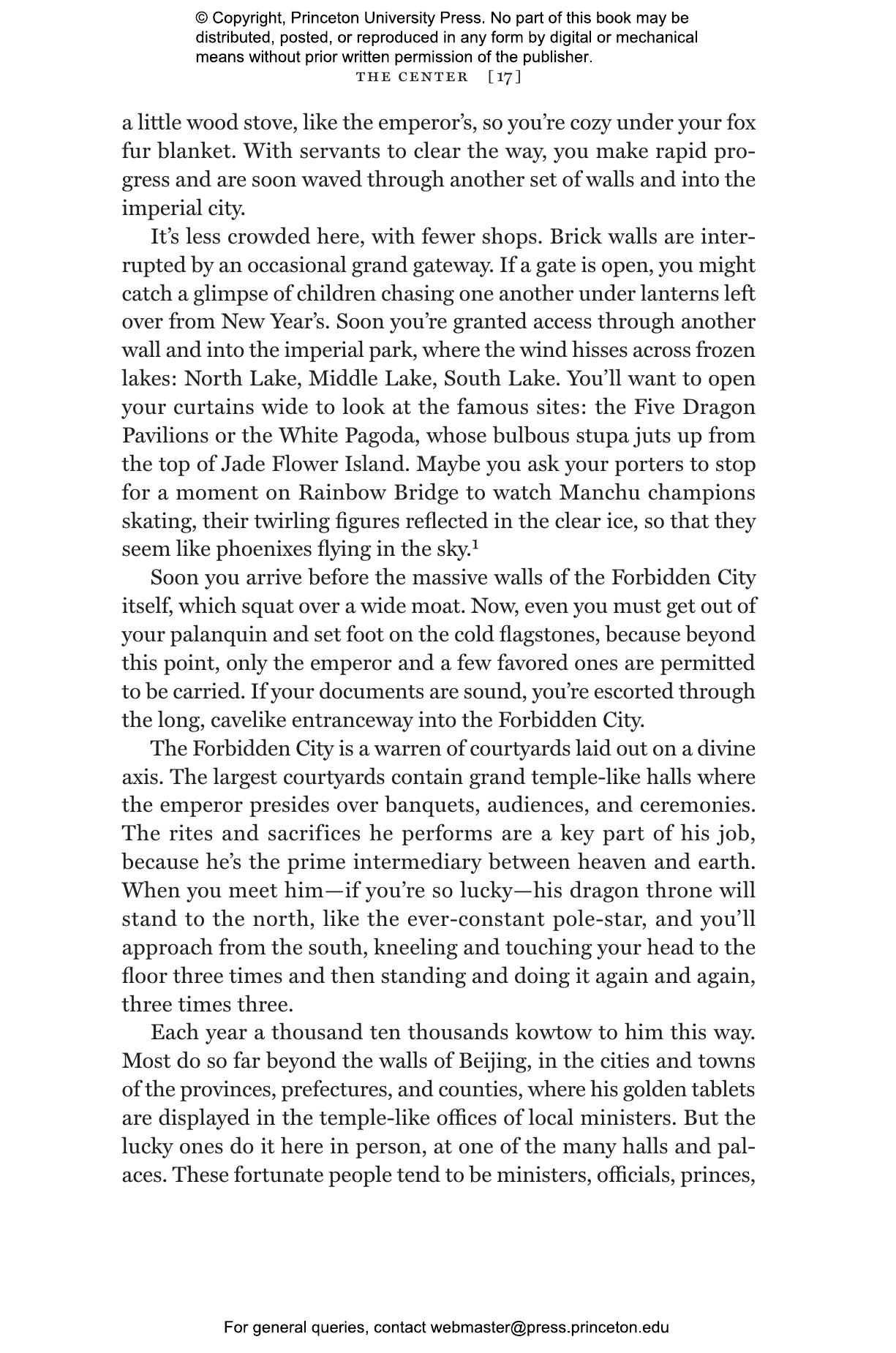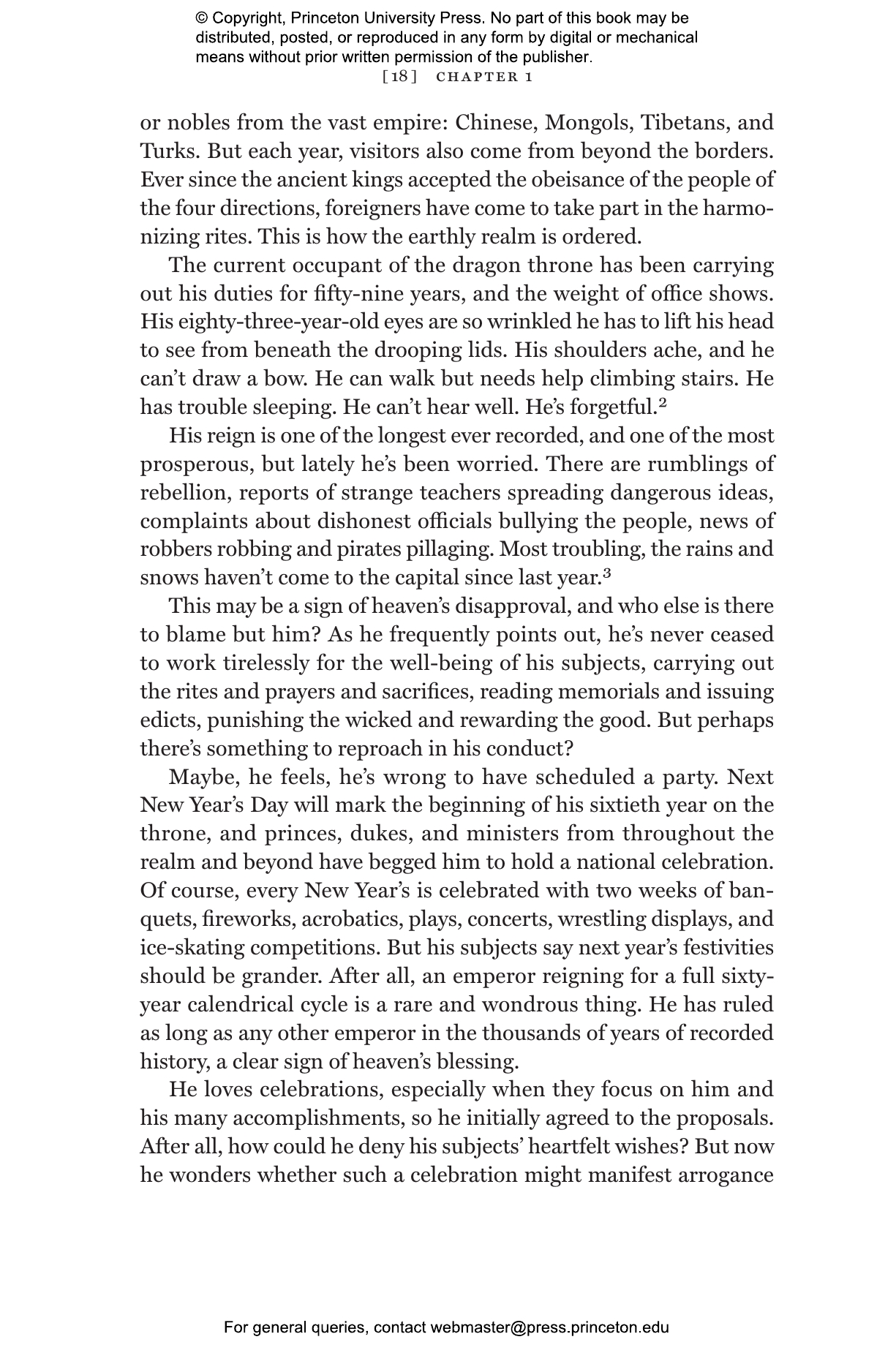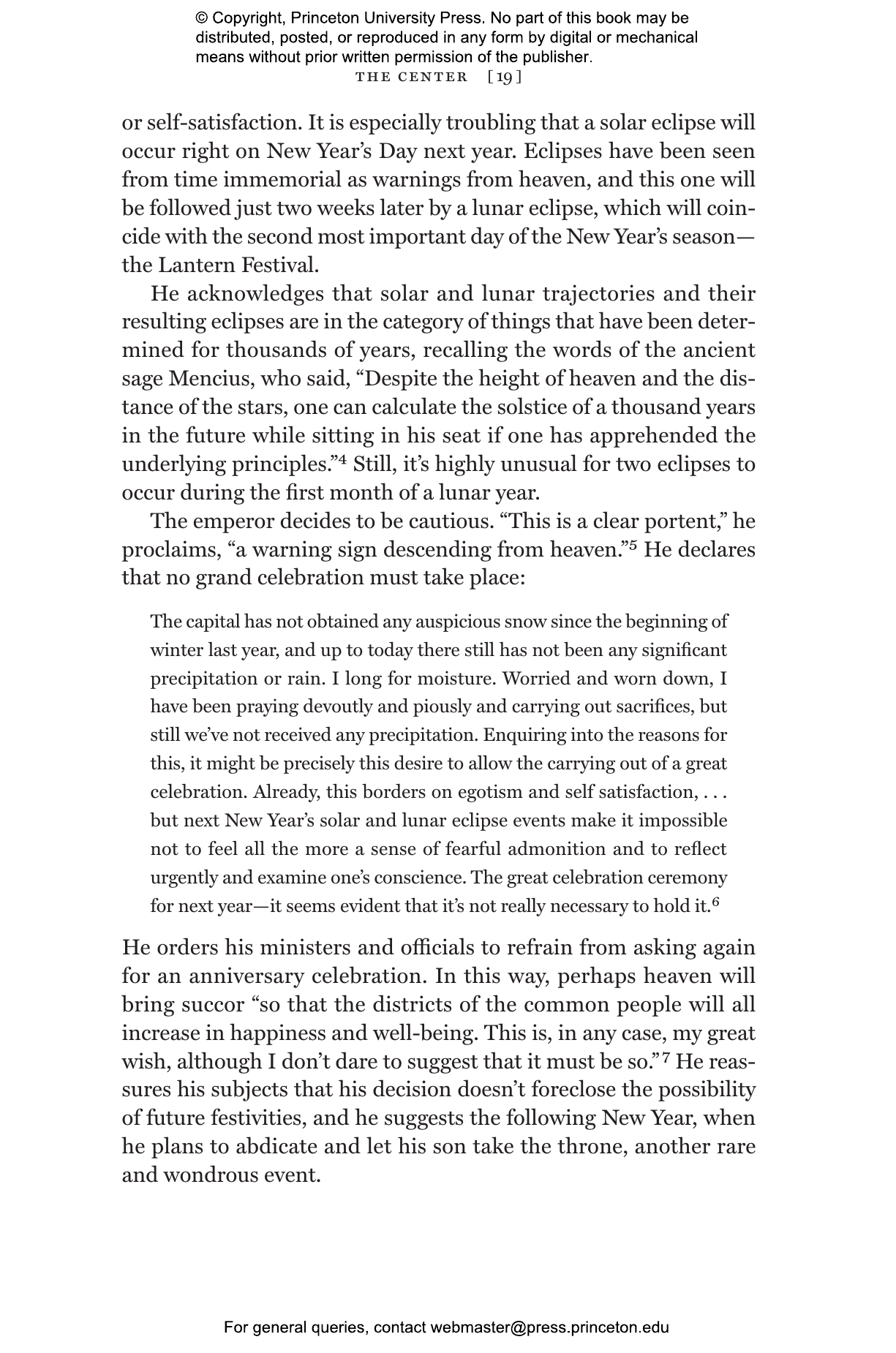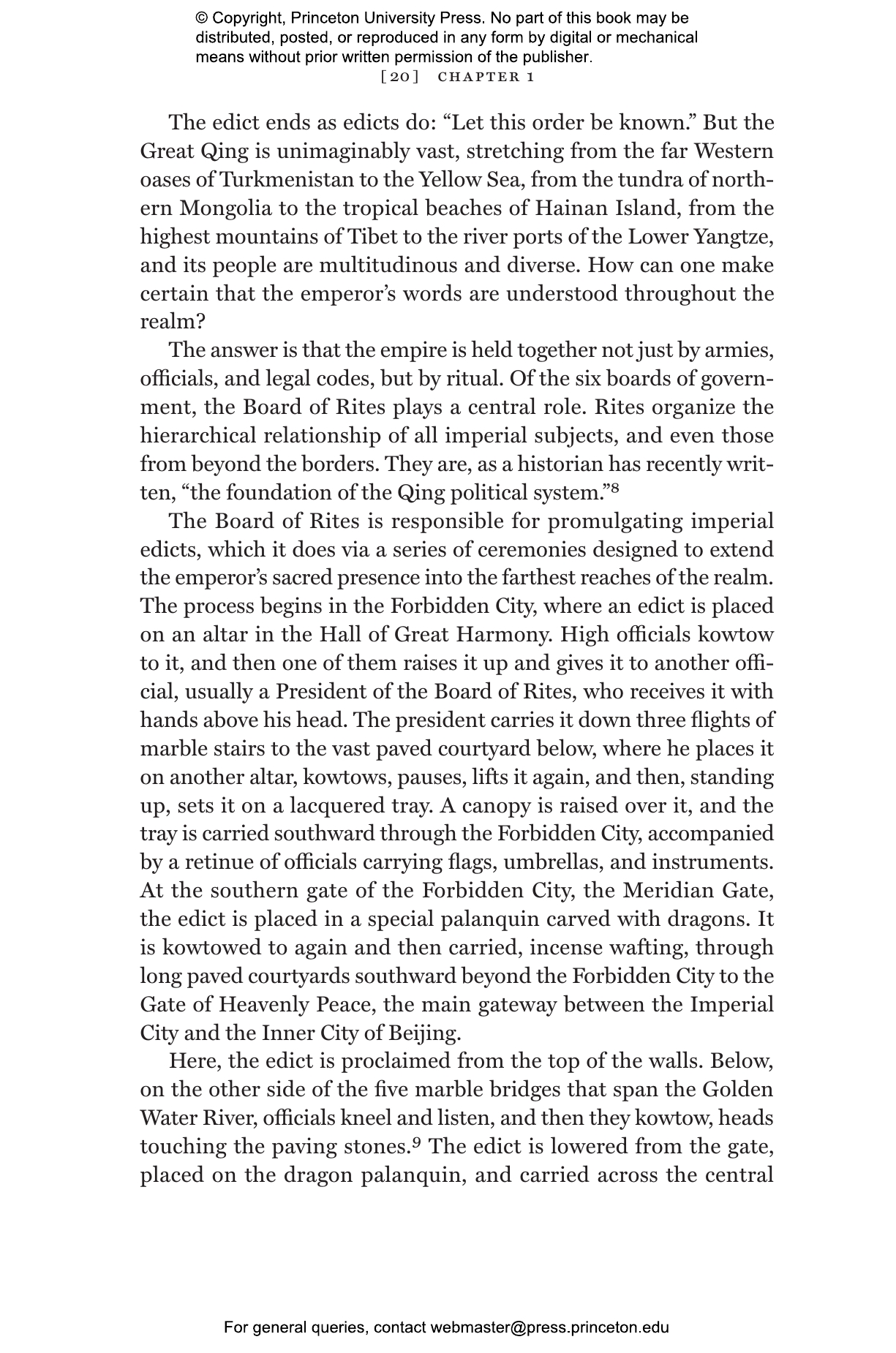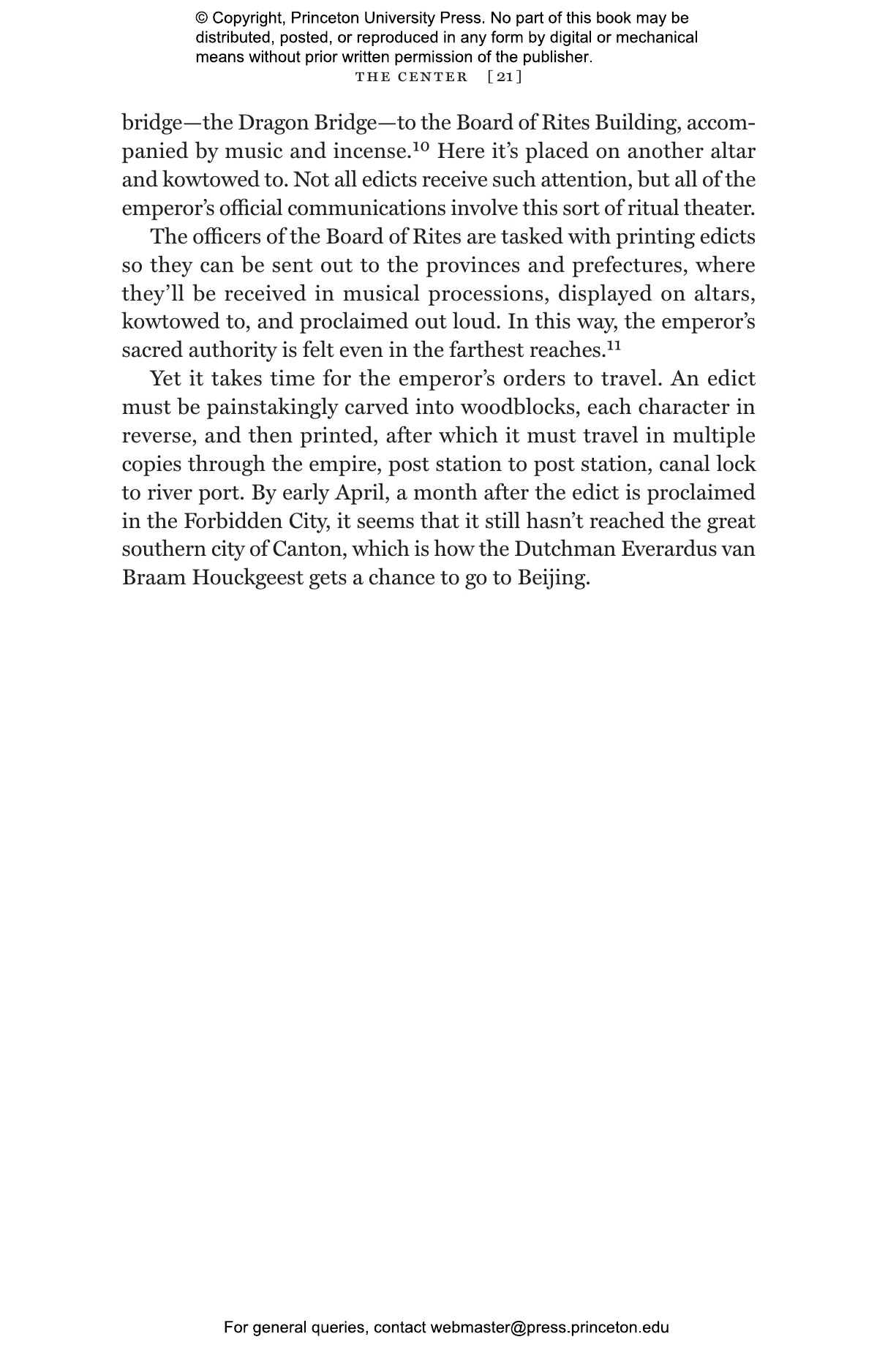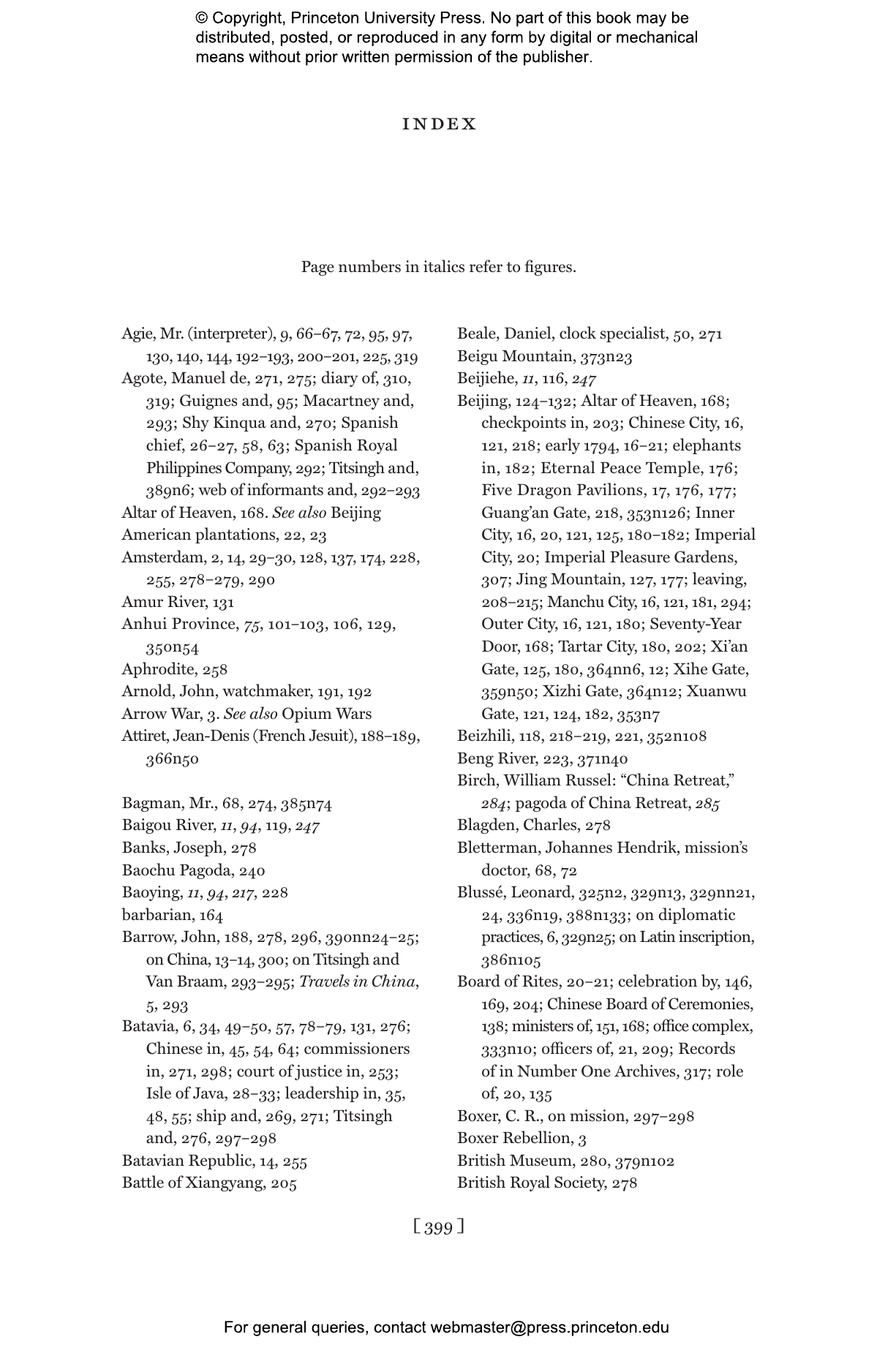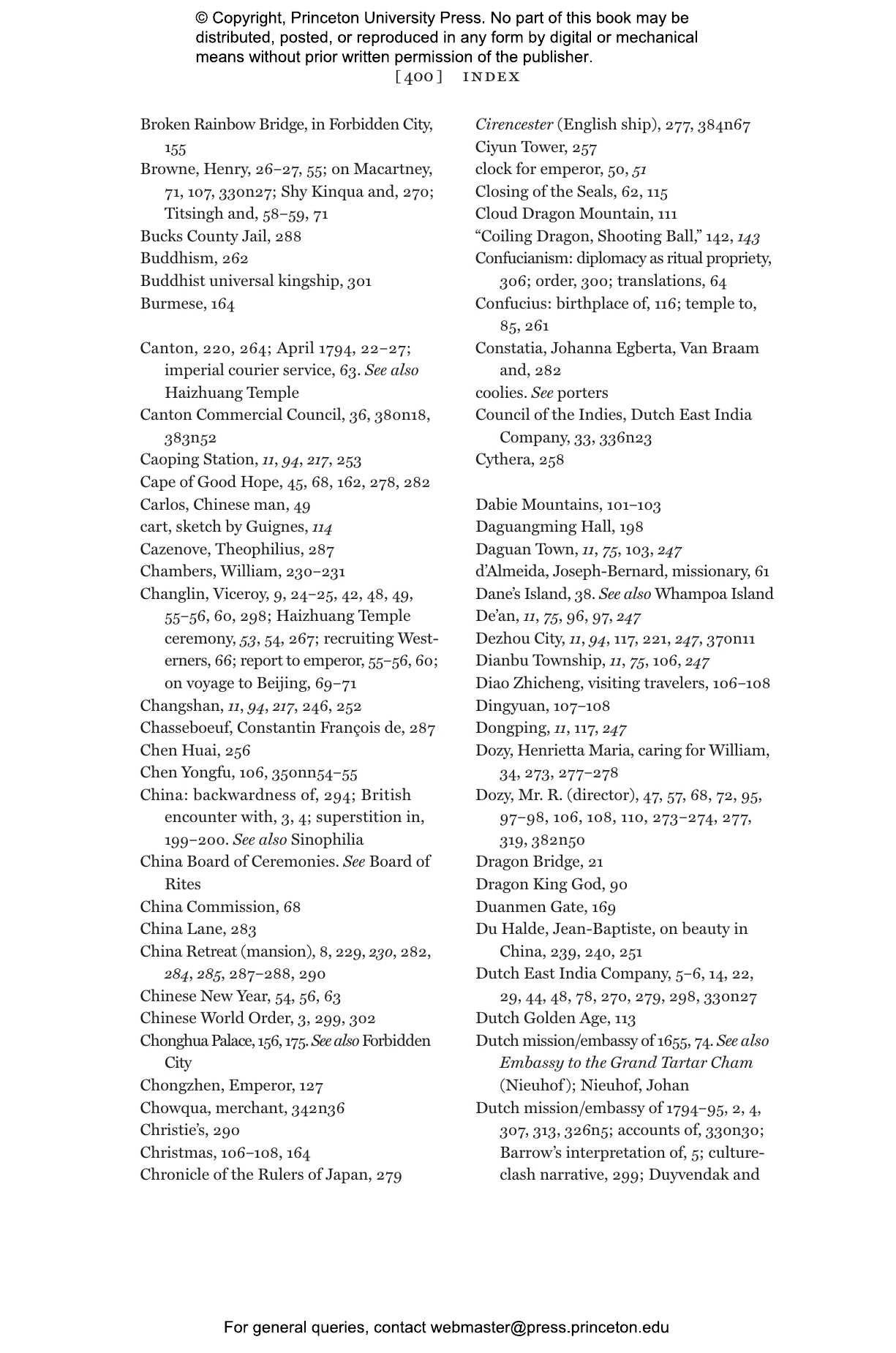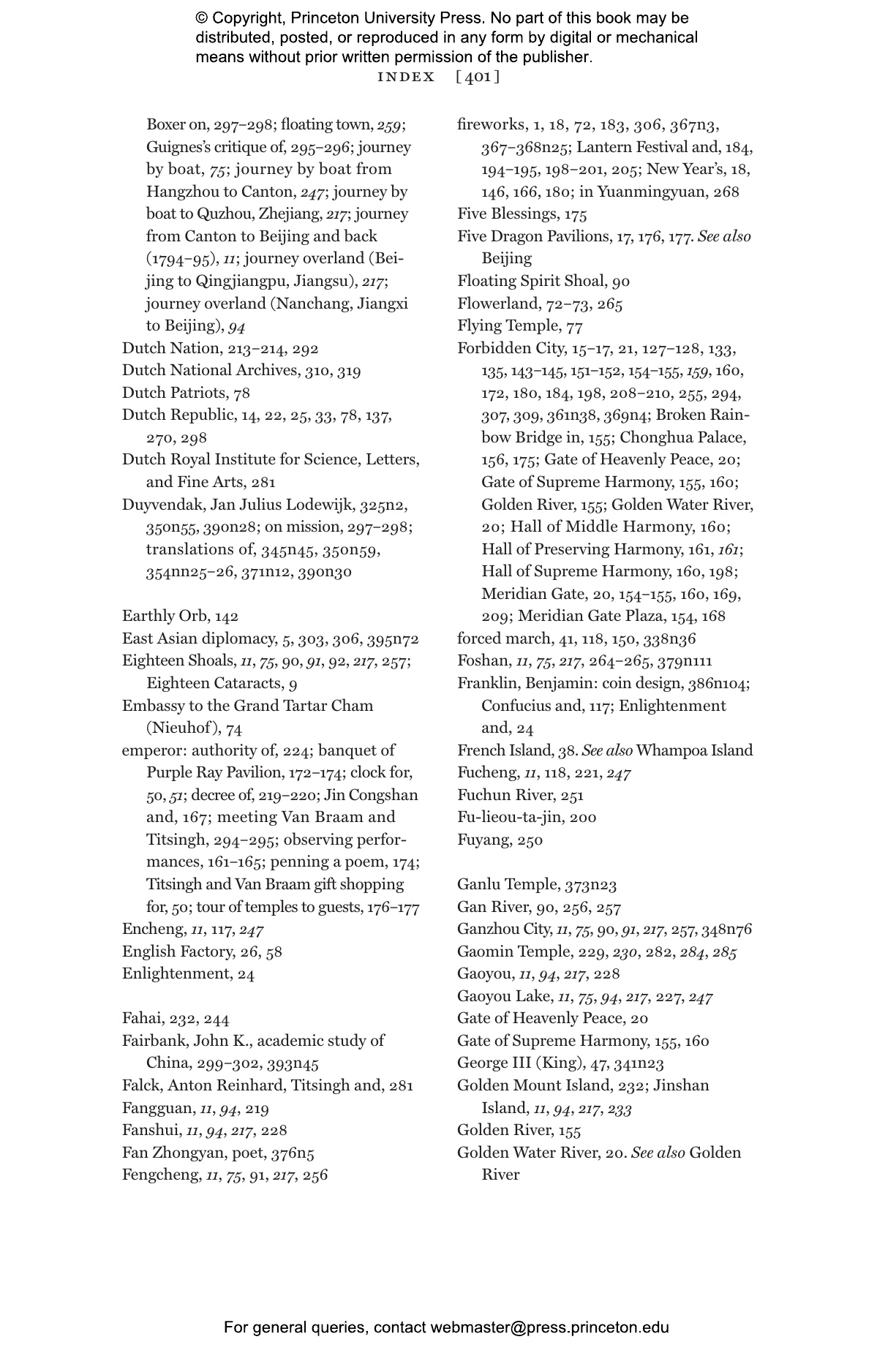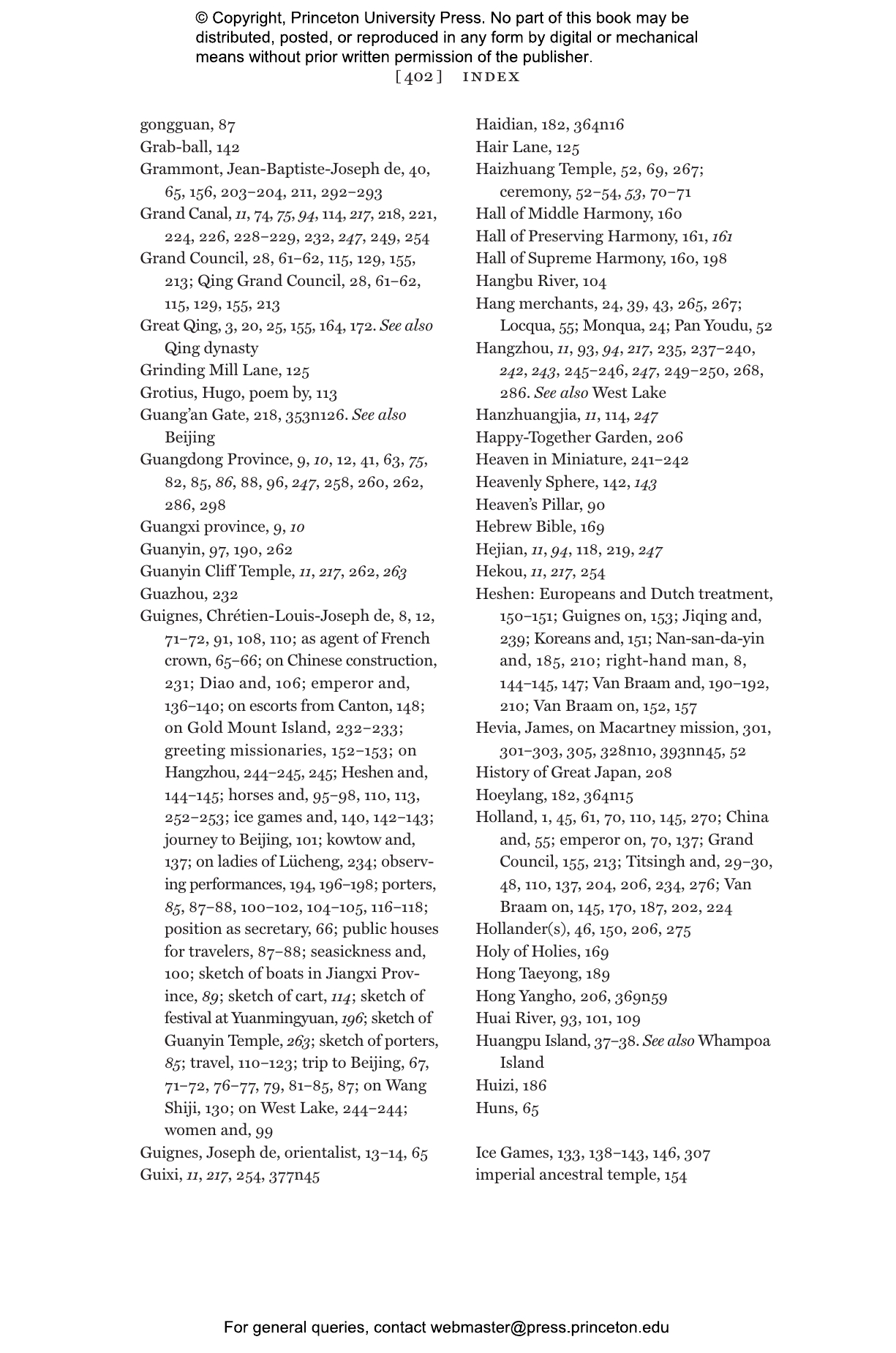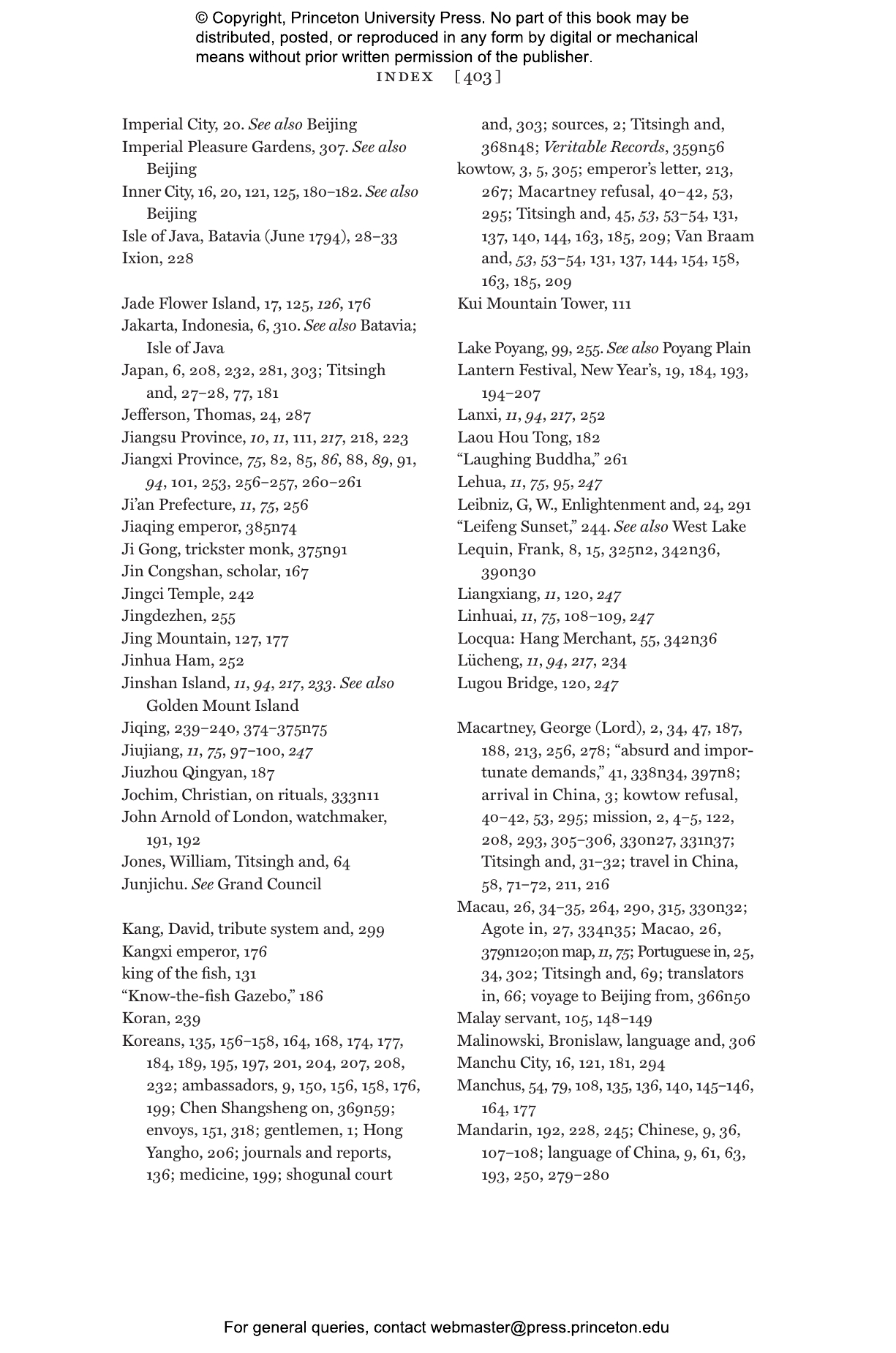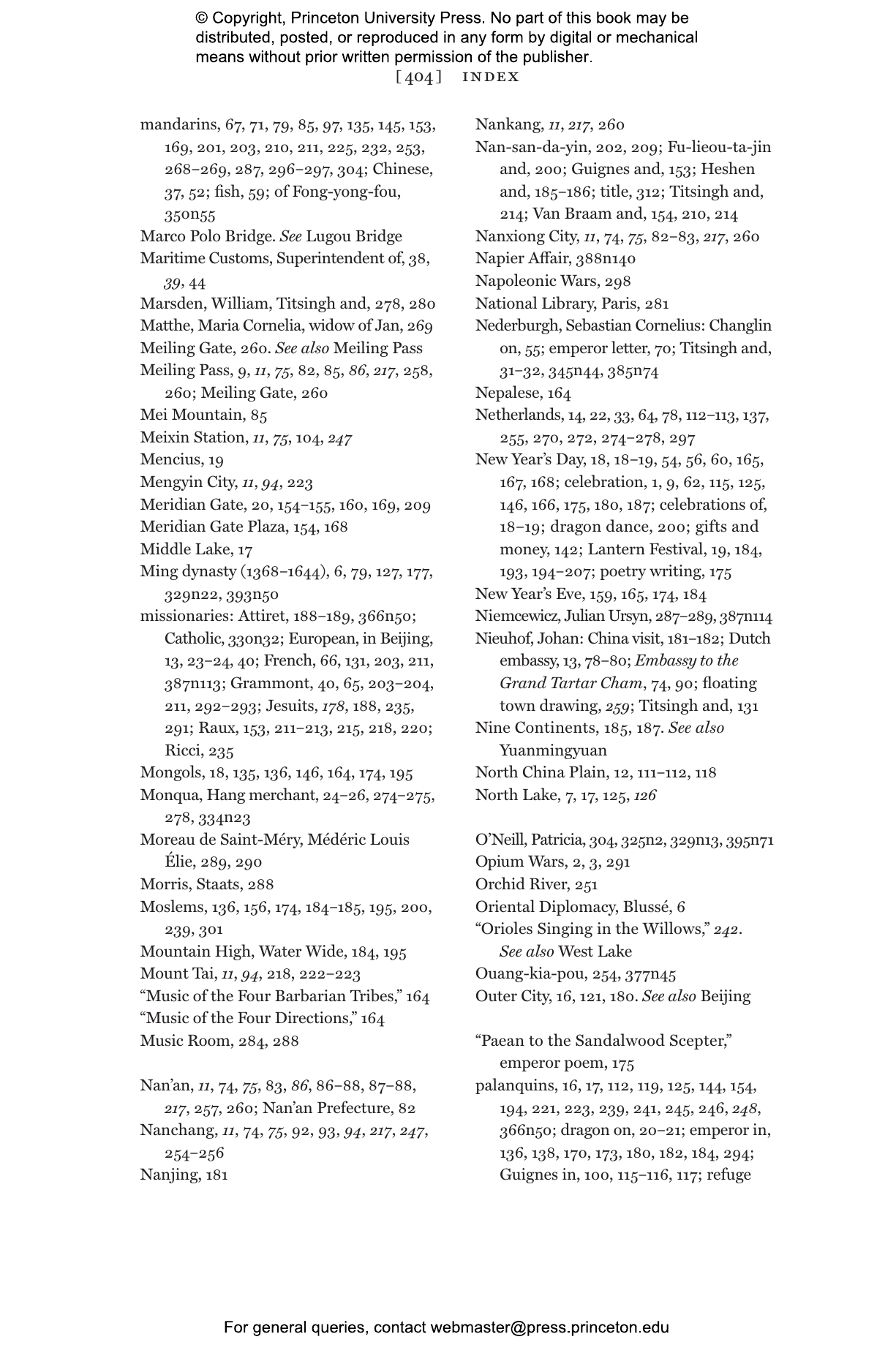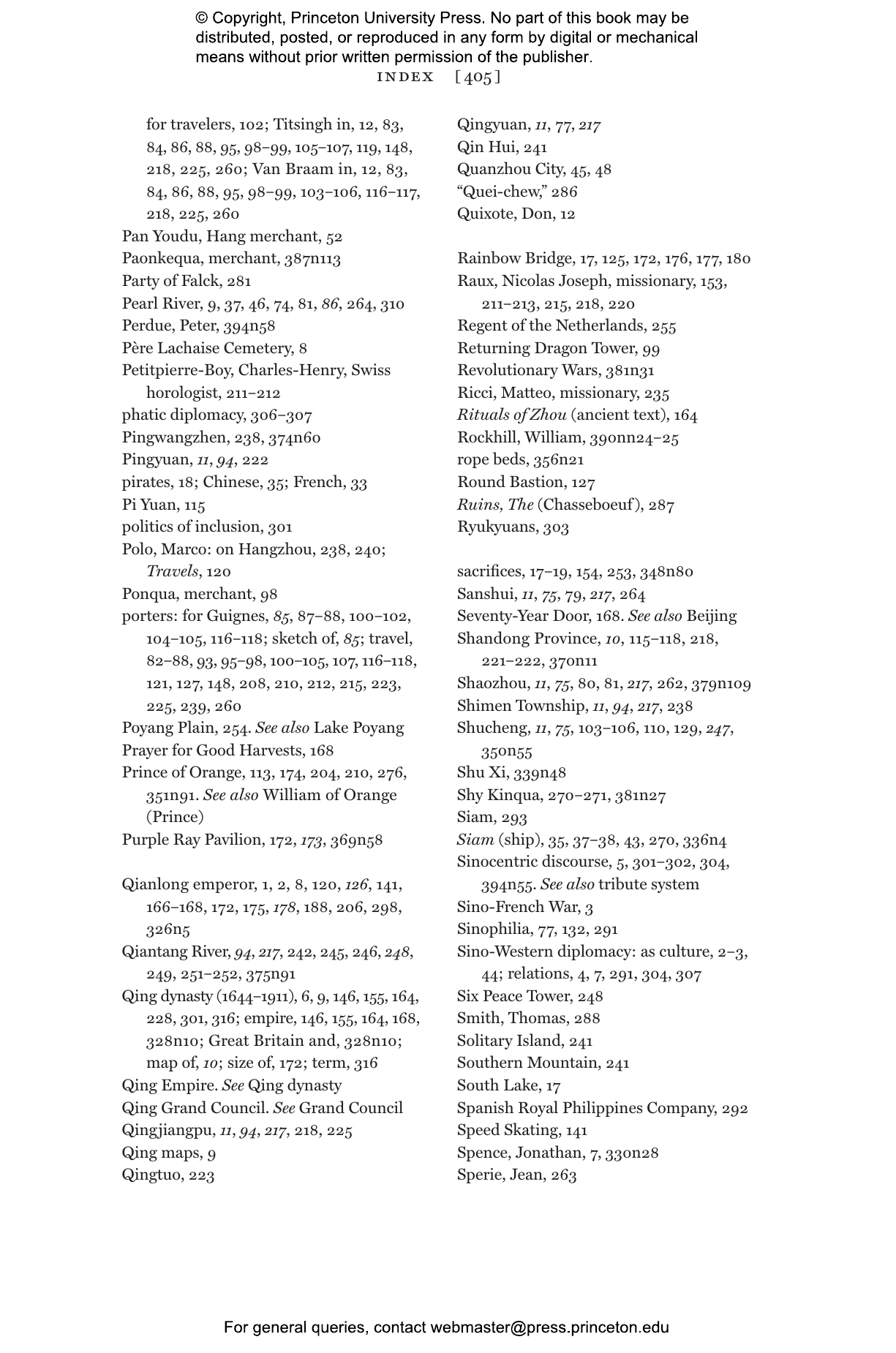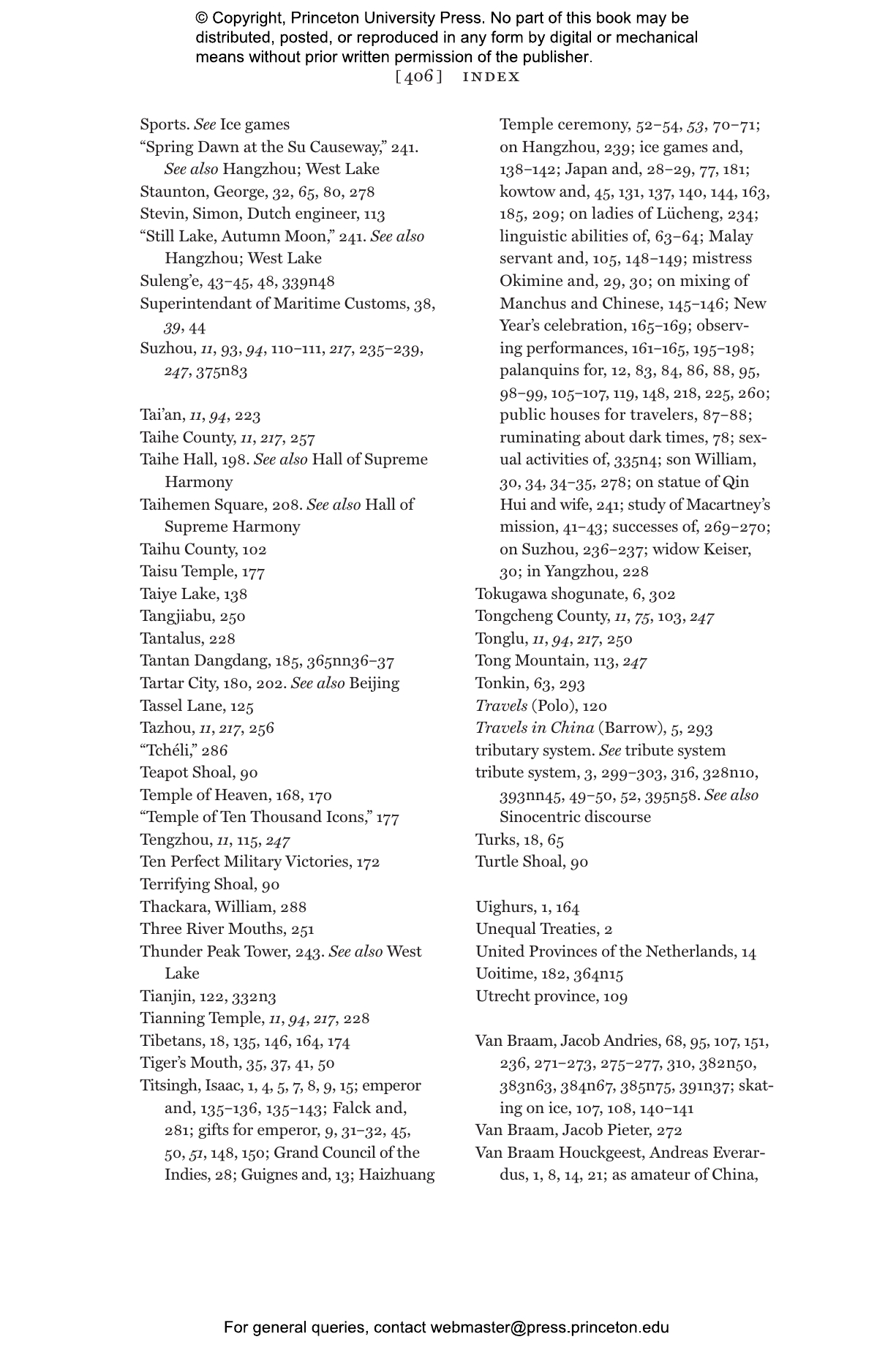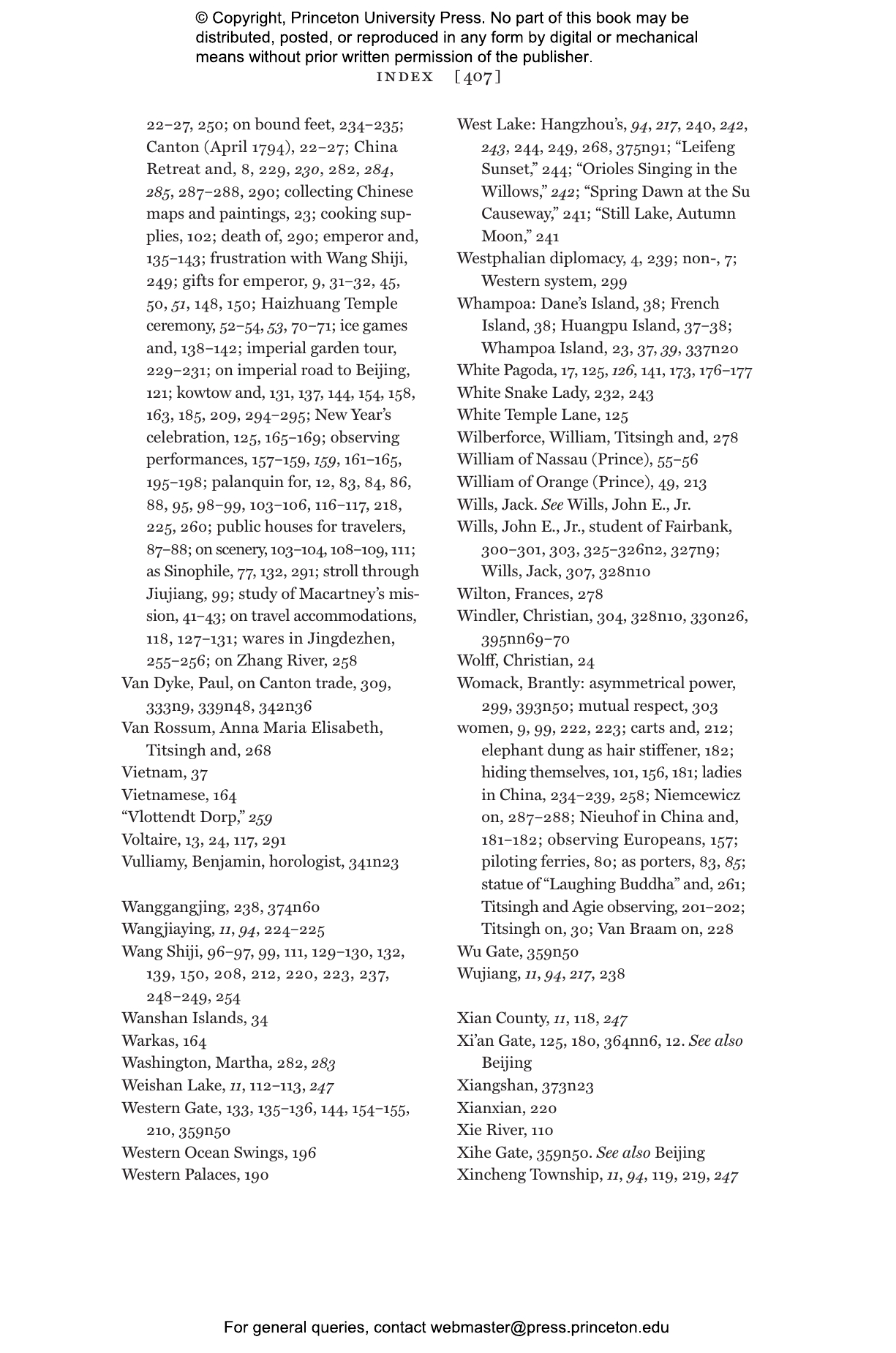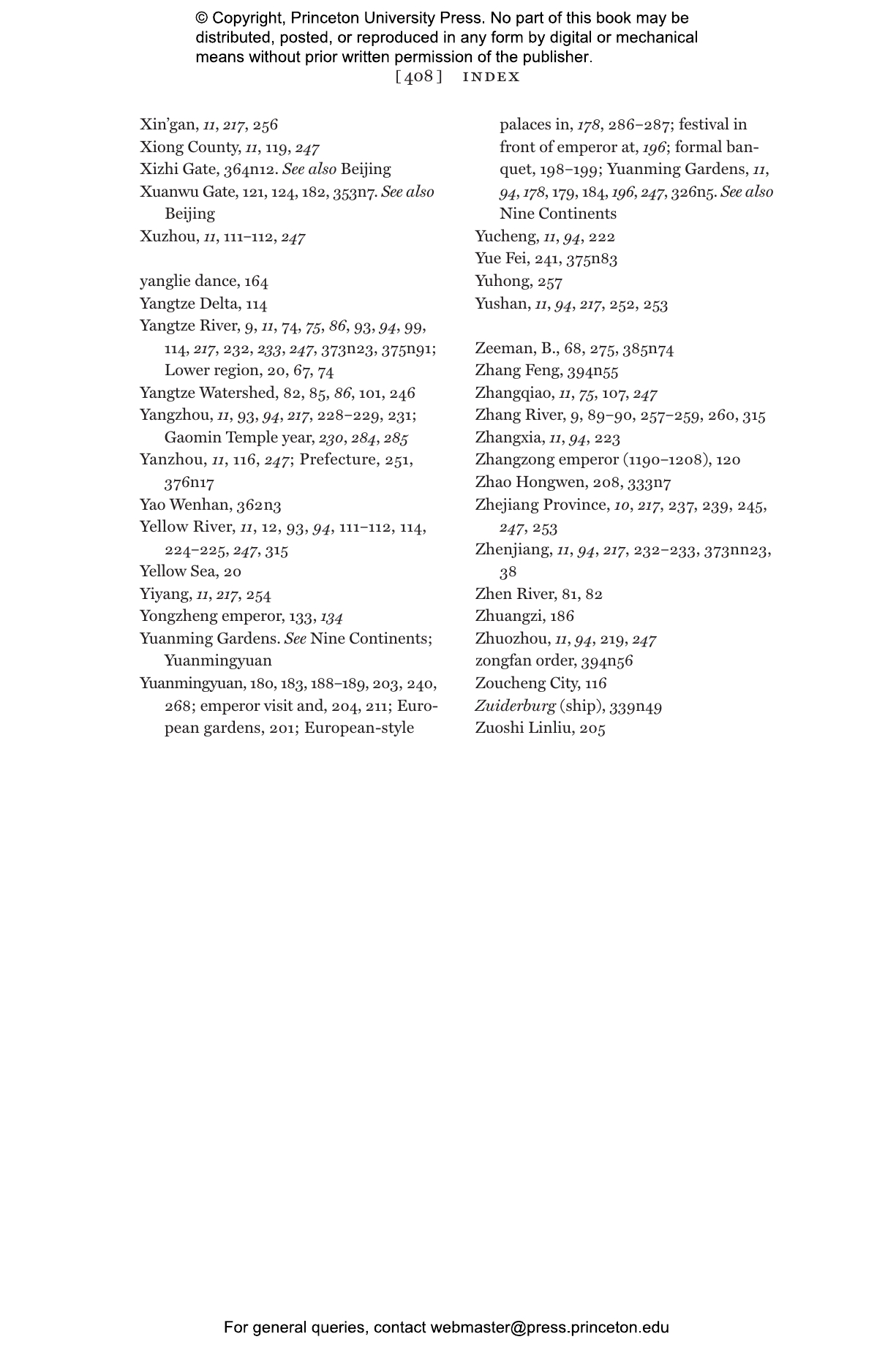George Macartney’s disastrous 1793 mission to China plays a central role in the prevailing narrative of modern Sino-European relations. Summarily dismissed by the Qing court, Macartney failed in nearly all of his objectives, perhaps setting the stage for the Opium Wars of the nineteenth century and the mistrust that still marks the relationship today. But not all European encounters with China were disastrous. The Last Embassy tells the story of the Dutch mission of 1795, bringing to light a dramatic but little-known episode that transforms our understanding of the history of China and the West.
Drawing on a wealth of archival material, Tonio Andrade paints a panoramic and multifaceted portrait of an age marked by intrigues and war. China was on the brink of rebellion. In Europe, French armies were invading Holland. Enduring a harrowing voyage, the Dutch mission was to be the last European diplomatic delegation ever received in the traditional Chinese court. Andrade shows how, in contrast to the British emissaries, the Dutch were men with deep knowledge of Asia who respected regional diplomatic norms and were committed to understanding China on its own terms.
Beautifully illustrated with sketches and paintings by Chinese and European artists, The Last Embassy suggests that the Qing court, often mischaracterized as arrogant and narrow-minded, was in fact open, flexible, curious, and cosmopolitan.
Awards and Recognition
- A Fortune Best Book of the Year
Tonio Andrade is professor of Chinese and global history at Emory University. His books include The Gunpowder Age: China, Military Innovation, and the Rise of the West in World History (Princeton), Lost Colony: The Untold Story of China's First Great Victory over the West (Princeton), and How Taiwan Became Chinese: Dutch, Spanish, and Han Colonization in the Seventeenth Century.
"The Last Embassy is rare in the field of academic history, in that it works just as well as a story as it does as a work of significant historical investigation. The story of the Dutch embassy to Beijing—the last to the Imperial Chinese court—has everything: competing protagonists, trials and tribulations, and imperial pomp and circumstance. Andrade’s work is a wonderfully written work about a neglected event in diplomatic history."鈥擭icholas Gordon, Fortune
"One of the best academic studies in terms of both scholarship and writing-style I have read in ten years or more. . . . An accessible, exciting, and illuminating book, written with consummate verve and enthusiasm."鈥擩ohn Butler, Asian Review of Books
"An animated account."鈥擯eter Neville-Hadley, South China Morning Post Magazine
"Its lively writing, quick chapters, and the descriptions of the various parts of the empire that the embassy travels through, give readers a panoramic view of the empire at its height."鈥擱eid Wyatt, World History Connected
"An excellent entry point for readers seeking a nuanced understanding of China’s global presence in the eighteenth century, and a useful corrective to those specialists who still tend to regard Qing relations with Britain as the totality of Qing relations with the ‘West.’"鈥擯amela Kyle Crossley, Journal of Early Modern History
"Andrade provides a fascinating window onto late eighteenth-century China."—Mark C. Elliott, author of Emperor Qianlong: Son of Heaven, Man of the World
"Drawing on Dutch, French, Spanish, Chinese, and Korean sources, Andrade vividly recreates the experiences of the Dutch mission as it traveled to Emperor Qianlong's court in 1795. Readers will be enthralled by this account, which challenges generalizations about the European view of China in the early nineteenth century."—Evelyn S. Rawski, author of Early Modern China and Northeast Asia: Cross-Border Perspectives
"The Last Embassy is a superbly written, illuminating, and thought-provoking book on an important topic long overlooked by historians. With vivid powers of narration, Andrade takes readers on a grand tour of the geographical, political, and cultural landscapes of Qing China."—Wensheng Wang, author of White Lotus Rebels and South China Pirates: Crisis and Reform in the Qing Empire


